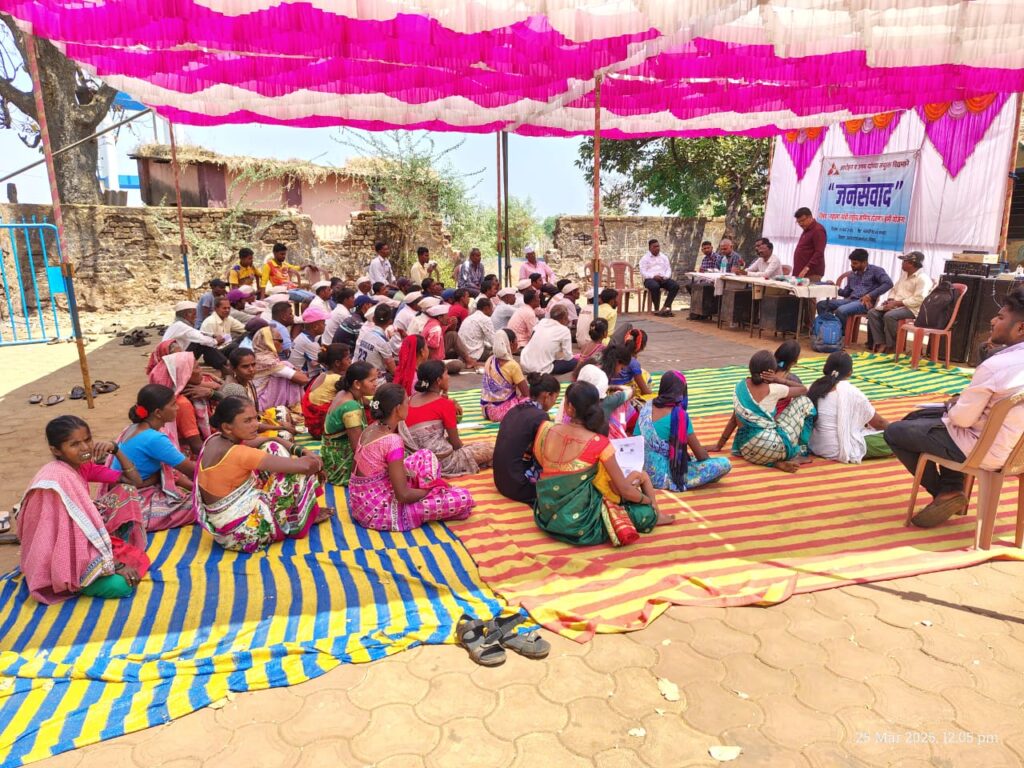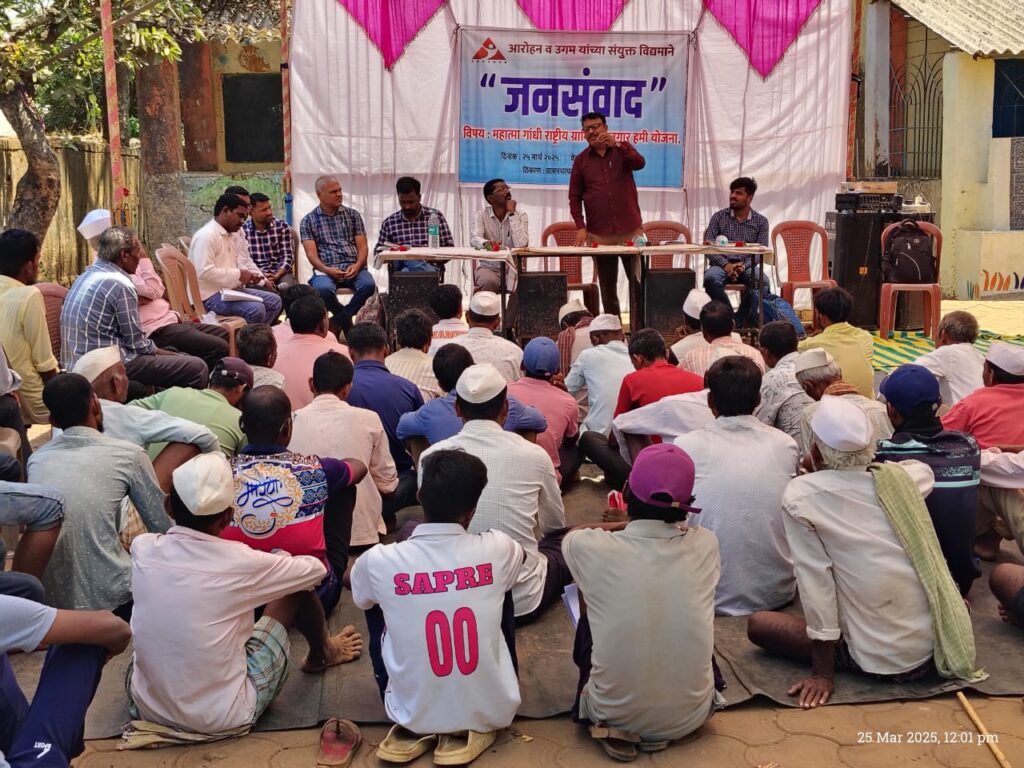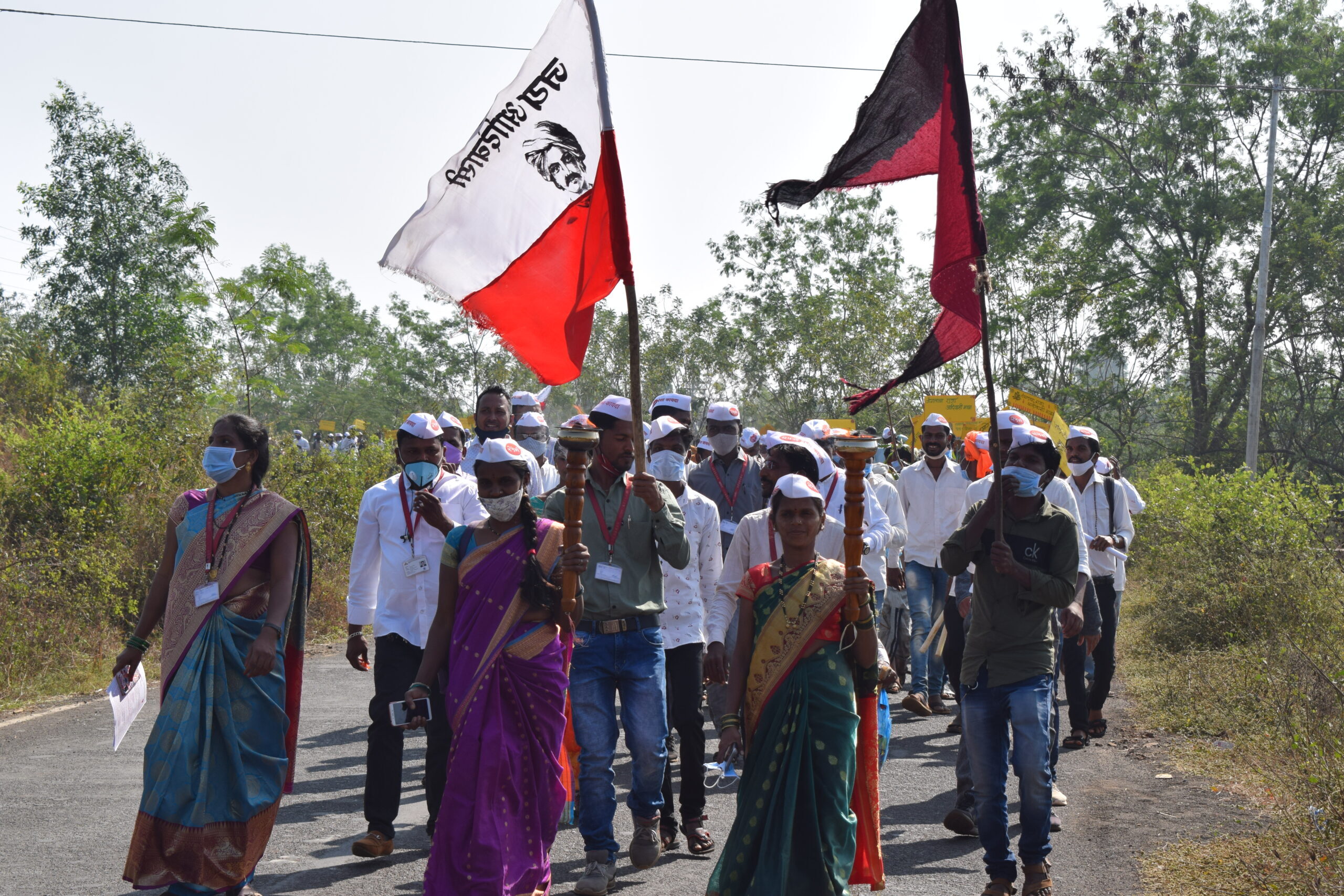Labourers ask about wages delayed for over 1 year in Public Dialogue
In collaboration with UGAM Private Ltd., AROEHAN held a public dialogue on employment guarantee and agriculture schemes at Gomghar Gram Panchayat of Mokhada Taluka in Palghar district. AROEHAN Governance activist Bhalchandra Salve introduced the programme and elaborated on the purpose of the public dialogue as a method for people to convey their queries and problems regarding employment schemes and their rights and entitlements for livelihood. A public dialogue goes beyond the standard awareness programmes and allows people to address their queries and struggles in the presence of key stakeholders of public institutions.
Over 118 labourers from various hamlets of Gomghar panchayat were present at the event. Labourers posed serious problems like not receiving wages for over one and a half year despite the remuneration payment being 15 days only. They spoke about pay difference for the same jobs, receiving Rs. 267 instead of Rs. 297 per day, labourers not receiving wages for over 5 musters, wages and scheme related remuneration being delayed for years.

While the MGNREGA Employment schemes guarantee 100 days of work within 15 days of applying for jobs, the labourers had to protest for several days to receive jobs and gained only 24 days of work. While the scheme specifies giving unemployment payment, that money never sees the light of the day, and they are only retorted with the promise of labour work indefinitely. Due to the bureaucratic system, the labourers who largely rely on daily wages are forced to migrate. They move to the closest suburban and urban industrial areas where they are deprived of basic facilities like healthcare, hygiene facilities, rations, and facilities for pregnant women and the education of children.

Many public representatives and government workers including Tehsil officer, Agriculture supervisor and assistant, Employment Officer, Deputy Sarpanch and Foresters were present at the event.
The government workers and stakeholders allayed the queries of the people and gave some preventive measures for delayed wages, including checking the Aadhar card linkage with bank accounts. Recently, the government started online attendance, which can be an issue in remote areas due to lack of network connectivity, no electricity and unavailability of resources. They also elaborated on new schemes focusing of implementation of orchard cultivation, farm ponds, flower cultivation, etc. They acknowledged the limitations of technology and government system due to which wages often get delayed. While difference in payment amount is a concern, they clarified the wages may differ due to the nature of work; for example, wages for excavation of soft soil, rocky soil, and muddy soil can be different. With regard to the delay in wages, they spoke about the funds being diverted towards already delayed payments for other wage workers, causing further delay for them. However, towards the end of the public dialogue, the list of labourers with delayed wages was collated, and the officers assured to resolve the issue would be resolved as a priority.



